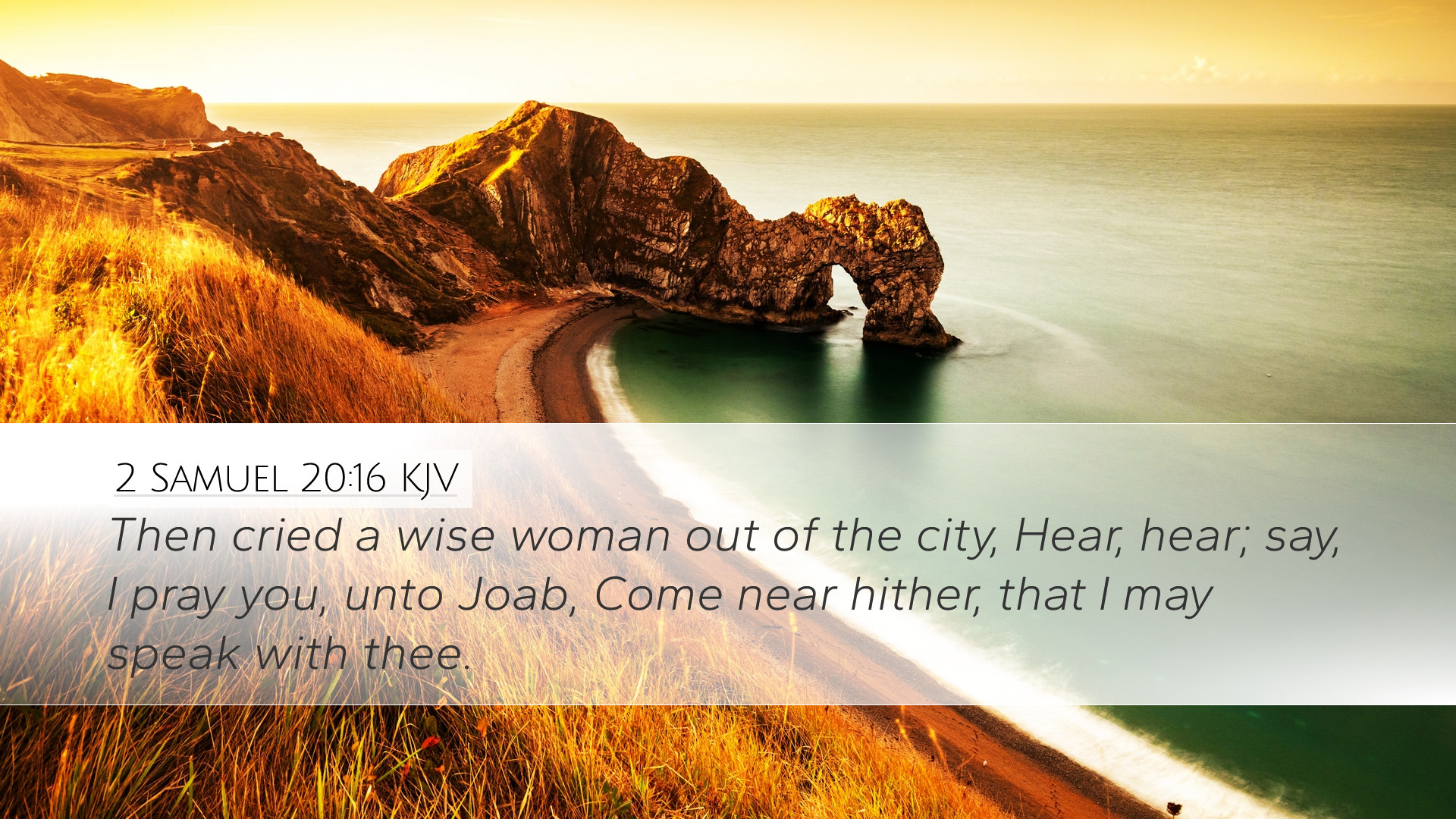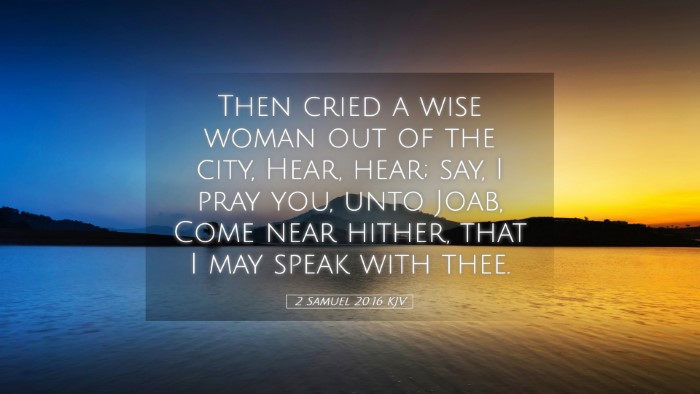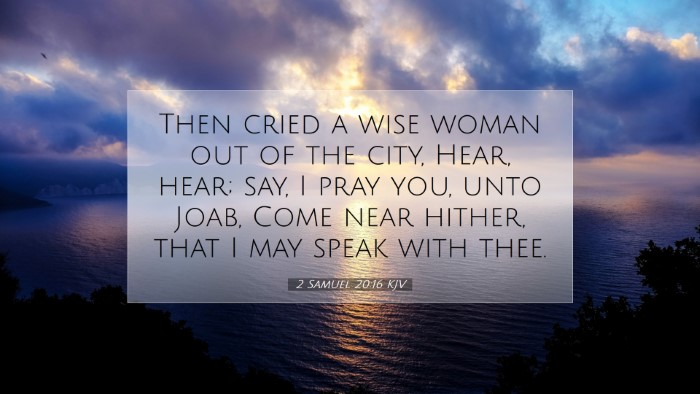Commentary on 2 Samuel 20:16
Verse Context: 2 Samuel 20:16 states, “Then a wise woman cried out from the city, ‘Hear, hear! Please say to Joab, "Come nearby, that I may speak with you."’” This passage occurs during a tumultuous period in Israel’s history, particularly after the rebellion led by Sheba. The verse captures a moment of conflict, human wisdom, and the role of women in biblical narratives.
Exegesis and Theological Implications
This verse opens a window into the human condition during a time of strife within the nation of Israel. The “wise woman” serves as a pivotal character who seeks to intercede in a situation that threatens the stability of her city and her people.
Character Study: The Wise Woman
- Profile: This unnamed woman exemplifies wisdom, a theme prevalent throughout the scriptures. Her actions demonstrate the capacity of individuals, particularly women, to influence important matters.
- Pragmatism: By requesting Joab's attention, she demonstrates a practical approach to resolving conflict—seeking dialogue rather than violence.
- Divine Wisdom: The choice of a woman as a mediator underscores God’s diverse means of intervention in human affairs. It challenges the cultural norms of the time and highlights the significance of women in the biblical narrative.
Joab’s Role
Joab, as the commander of David’s army, represents authority and military power. The wise woman’s appeal to him reveals much about leadership dynamics in a time of crisis. Though he is often ruthless, she seeks to engage him in conversation, calling attention to the necessity of wisdom over brute force.
Insights from Public Domain Commentaries
Matthew Henry
Matthew Henry comments on the woman's tactical approach in this verse, noting her appeal reflects both her wisdom and her desire for peace. He suggests that she embodies the critical nature of wise counsel in tumultuous times. According to Henry, her intervention serves to highlight the importance of speaking wisely during conflict, where rash decisions could lead to destruction.
Albert Barnes
Albert Barnes emphasizes the narrative's illustration of the ability of individuals to impact significant events. He interprets this verse as a portrayal of the community's reliance on wisdom for preservation and governance. Barnes points to the woman’s authority in the city and the respect that Joab must afford her, demonstrating that wisdom can command respect regardless of gender or societal status.
Adam Clarke
Adam Clarke reflects on the nature of the plea made by the wise woman, underscoring the gravity of her situation. He notes that her willingness to speak serves as an act of faith in God’s providence. Clarke argues that her role is emblematic of the church's mission in trying times—to seek reconciliation and peace while drawing upon God’s wisdom and strength.
Practical Application for Pastors and Theologians
- Wisdom in Leadership: This text serves as a reminder that leaders, both lay and ordained, must seek wisdom and counsel in the face of conflict. The church today can take note from the wise woman and be proactive in seeking peaceful resolutions.
- The Role of Women: This verse invites reflection on the role of women in leadership and decision-making within both church and society. It challenges traditional notions and highlights the invaluable contributions of women in spiritual and communal contexts.
- Conflict Resolution: The wise woman’s approach suggests the effectiveness of dialogue over confrontation. This is a needed lesson for contemporary church disputes and community challenges.
- Faith in Action: Her act of calling upon Joab embodies a response rooted in faith. Christians are encouraged to take bold steps in their communities, trusting in God to grant the necessary wisdom to navigate complex situations.
Conclusion
In summary, 2 Samuel 20:16 is not only a historical account but also a rich source of theological and practical insights. The characters within this verse serve as archetypes of wisdom and leadership, reminding us of the power of thoughtful dialogue and the critical role of individuals who desire peace. For pastors, students, and theologians, engaging deeply with this text can yield fruitful discussions and applications for both personal and communal life.
In a world rife with conflict and division, the wisdom demonstrated by the woman in this narrative is more relevant than ever, urging believers to advocate for peace, understanding, and the wise use of words in all circumstances.


